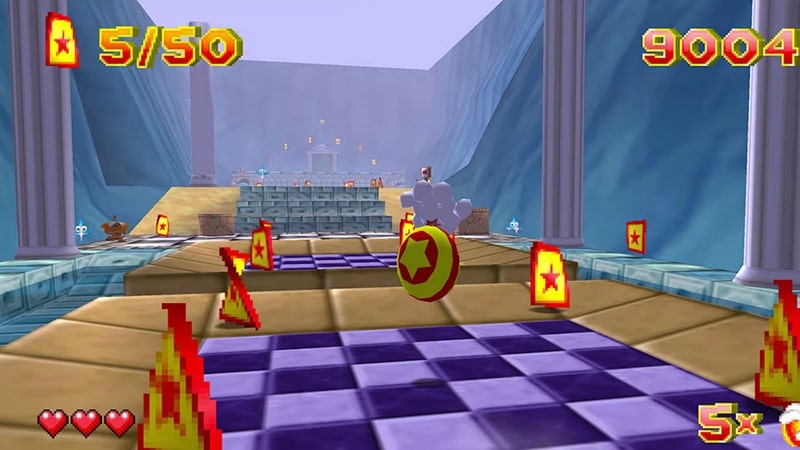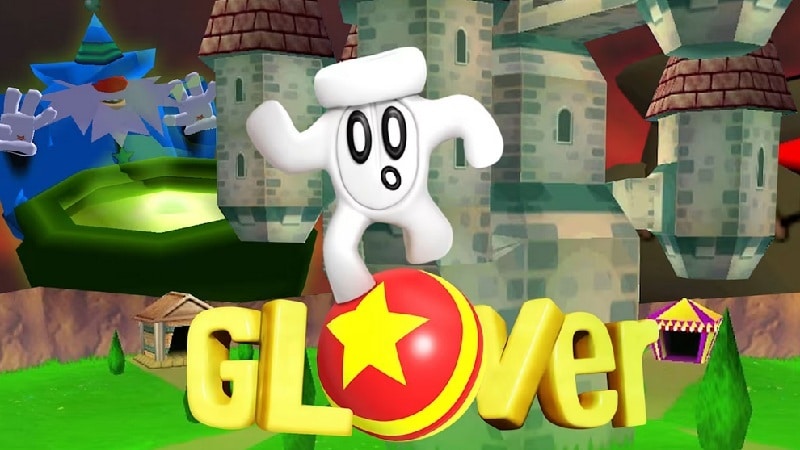The N64 and PlayStation eras opened a new world to gaming by introducing the third dimension. Of the many entries from this era, Glover was a modest cult classic. Many appreciated the game’s unique take on the novel 3D platformer genre. However, the game never received a sequel and was nearly forgotten.
However, nearly three decades later, the game would return. Recently, a new studio announced it would port the original game to PC and modern consoles. Here is a breakdown of why 3D-platformer fans should be excited for Glover’s return.
The Return of Glover

According to a recent trailer, the 1998 3D platformer Glover will return through a multi-platform port. This port will arrive on the PS4, PS5, Xbox One, Xbox Series X|S, and Nintendo Switch. Judging from the footage, this will be a simple game transfer to modern devices without any graphical overhaul or new features. The game will hit the shelves on February 27th.
While Atari developed the original game alongside the now-defunct Interactive Studios, this re-release will be handled by the Brazilian developer QUByte Interactive. While they are an independent studio, they are veterans of porting old games while making original games. In 2022, Piko Interactive brought the game to Windows through Steam and GOG.
The Original Classic
As stated earlier, the N64 and PSX revolutionized the medium with the jump to 3D. Many classics, such as Super Mario 64, Ocarina of Time, and Final Fantasy VII, revealed what this new era would bring. The 3D platformer was one of the many genres spawned, including early games like Spyro, Crash Bandicoot, and Banjo Kazooie. One forgotten example was Glover.
The game followed the magic glove, Glover, as he tried to save the Crystal Kingdom and his wizard master. As one can guess from the title, players controlled a sentient glove, and puzzles revolved around him pushing a ball through stages divided between six worlds. Overall, the game attracted a modest fanbase that enjoyed it enough to receive a proper port.
Despite the game’s success on the N64, it also had a PSX port. However, this port was universally despised for altering cutscenes, worse graphics, and poor controls. The game originally had a sequel planned, but it was canceled while it was nearly completed due to executive meddling. However, this re-release’s success could open the door for a reboot, sequel, or a spiritual successor.
Preserving Older Games
This is impressive news because more companies are stepping forward to preserve older games through stable, legitimate means. As consoles and games become discontinued and digital storefronts are shut down, older games become harder to preserve. As such, many gamers have been forced to turn to emulation to experience these games and prevent their extinction. Therefore, entire studios such as QUByte have stepped up to the task of adapting these classics.
Developers occasionally use remakes and remasters to modernize games. However, these have proven to be divisive among audiences, for they often alter the art direction and needlessly add gameplay elements, especially when a simple port would have sufficed. Fortunately, the rise of Steam and the Epic Games store heralded a new age for game preservation, making it substantially easier to download old games.
Conclusion
While Glover was far from a monument of the N64, it did not deserve to be forgotten entirely. It offered many innovations to the fledgling genre of 3D platformers. Fortunately, QUByte and Piko stepped forward to bring this game to modern audiences even after its developer’s closure. In an age where it’s become a race to officially bring older games to digital storefronts, this cult classic’s return is a strong success story. Glover’s return will hopefully set an example for other developers bringing classic games to modern devices.


